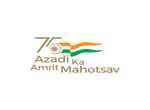FODAG
Flag Officer Defence Advisory Group
Historical Background
Headquarters, Offshore Defence Advisory Group (HQODAG) was constituted on 31 Dec 1983 to plan and advise Naval Staff and ONGC on security arrangements in the offshore regions. It functions as the nodal agency for all interaction with ONGC and other oil Exploration & Production (E & P) companies in matters relating to defence of offshore installations within the Maritime zones of India. The organization is headed by Flag officer Defence Advisory Group (FODAG), who was later redesignated as “FODAG and Advisor Offshore Security and Defence to the Government of India” on 25 Jun 02.
Function/ Role
The primary functions of FODAG include following:-
-
To advise the GoI including the Ministries of Defence, Petroleum & Natural Gas and Shipping and Civil Aviation through the Chief of the Naval Staff on all planning and policy aspects of offshore security and defence covering territorial waters, the Continental Shelf, the Exclusive Economic Zone and other Maritime Zones of India as defined in the MZI Act 1981. These aspects include:-
- Coordination of the functioning of offshore security arrangements.
- Identification of various threats to offshore installations and terminals.
- Identification and defining of military threats in situations short of war.
- Examination and proposing of appropriate security measures in respect of all entities engaged in offshore exploration and other measures necessary for the security of offshore installations and terminals.
- To exercise command and control over mobile forces and static defenses in the defence of offshore installations, as directed by the respective Commander -in-Chief’s.
- To monitor mercantile traffic for transit through recommended routes/ fairways in the vicinity of offshore areas, in coordination with the concerned civil authorities.
- To inspect vessels engaged in offshore work, prior to their being deployed, for the purpose of ascertaining compliance with the security clearance accorded by competent authority.
- FODAG is also the member of Offshore Security Co-ordination Committee (OSCC), which manages offshore security. He is also the chairman of the Joint Venture Offshore Protection Advisory Committee (JVOPAC) which is a Sub Committee of the OSCC and a forum to facilitate the exchange of security and offshore issues between the OSCC and the offshore JV/ private oil companies, as Joint Venture/ private companies do not have representation in OSCC.
Achievements
- Sensitisation of all offshore E & P Operators about the requirements of enhancing security measures for their installations through OSCC/ JVOPAC.
- Continuous radar and AIS surveillance of offshore assets and areas in the vicinity of the West Coast using the Vessel Air Traffic Management System.
- Armed patrols in the immediate vicinity of offshore platforms with the hired patrol boats provided by ONGC.
- Monitoring and guiding mercantile traffic for compliance of Safety Fairway in Western Offshore Development Areas.
- Ensuring only authorised vessels operate inside the Offshore Development Area.
- Conceptualizing and initiation of setting of a robust surveillance arrangement for protection of offshore assets on the East coast.







